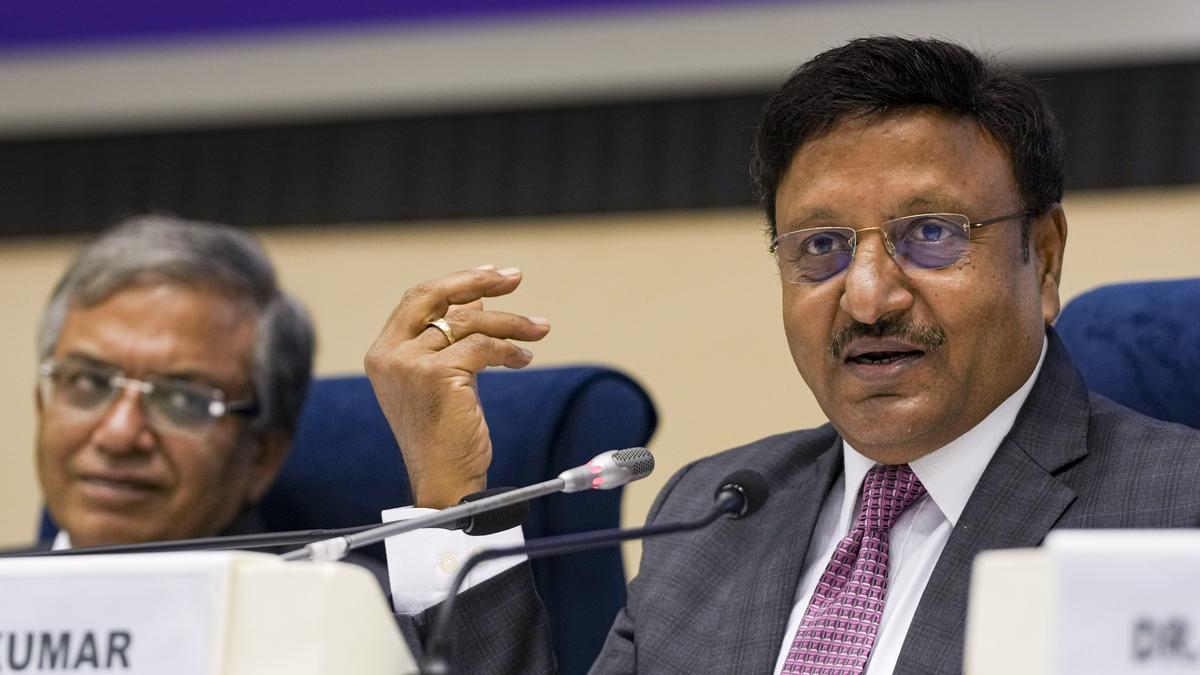OnFriday, the Election Commission declared the dates and schedule for Haryana as well as Jammu and Kashmir Assembly elections, leaving the polling in Maharashtra and Jharkhand for another day. In fact, the EC announcement took everyone by surprise since the general expectation was that there would be simultaneous polls in at least four states.
Elections in Jammu and Kashmir would be held after nearly 10 years, and for the first time since the state was divided into union territories in 2019, while its special status was also abolished. The three-phase polling would witness a keen fight to regain control of the region, with the National Conference and PDP attempting to wrest control, while the Congress and the BJP also playing an important part.
Former J&K Chief Minister Farooq Abdullah, while welcoming the EC’s declaration, stated that he would be contesting the Assembly polls. His son, Omar Abdullah, also a former CM, would be keeping away till full statehood was restored to Jammu and Kashmir and would subsequently contest from the seat he proposed to win for his party.
The elections would also determine the future of another former CM, Ghulam Nabi Azad, who had walked out of the Congress to form his own party, which is struggling to find a foothold in the region’s political arithmetic. Azad was the last Congress CM of the state and many consider him as one of the best heads of government there.
There is an interesting story linked with the Congress, which was a dominant force in the region but in 1975 allowed Sheikh Abdullah to come to power following his pact with Indira Gandhi. Syed Mir Qasim, who was the Congress CM was made to resign to enable the senior Abdullah to be the CM. Not many know that Sheikh Abdullah, when he took over, was elected as the CM by the Congress legislative party.
Syed Mir Qasim was very miffed with the decision and during a chance meeting with Rajiv Gandhi at the Chandigarh airport, conveyed a strong message for Indira Gandhi. Rajiv was a pilot with the Indian Airlines, and Qasim told him that his mother had committed a blunder that would cost the party very heavily. The Congress would not return to power for at least 30 years.
Qasim’s words proved prophetic and it was exactly 30 years later that Ghulam Nabi Azad became the Chief Minister as part of a power sharing formula with the PDP and Mufti Mohammad Sayeed. The supreme irony was that had Sheikh Abdullah not been made the CM by the Congress, Mufti Mohammad Sayeed, who was an upcoming Congress legislator, was tipped to succeed Syed Mir Qasim. That did not happen.
The three-phase poll in Jammu and Kashmir would be held under heavy security bandobast. Prior to the announcement of the dates, the administration there had transferred more than 200 officers, and a new DGP was also appointed. The government in fact is prepared for any kind of violence and is making all efforts for the conduct of a peaceful poll to hand over power to an elected dispensation.
In Haryana, where the BJP has been in power for ten years, the party would have to use all its resources and strategies to prevent the Congress from wresting power. There are many in the saffron brigade who believe that if Manohar Lal Khattar, now Union Minister for Urban Development, would have been allowed to continue as the CM, the BJP would have been better placed.
There are also rumblings within the BJP where senior leaders such as Rao Inderjit, who is a Union Minister, have openly expressed their disappointment over being ignored for the CM’s position. Former CM, Bhajan Lal’s son, Kuldeep Bishnoi, whose claim for a Lok Sabha seat from Hisar was overlooked, also seems to be unhappy as also Anil Vij, former Deputy CM. It has to be seen how the central leadership would iron out the differences and present a united face.
There is factionalism within the Congress as well, but the common perception is that if the elections are contested under the overall leadership of former CM, Bhupinder Singh Hooda, the chances of the party winning would be higher. The general atmosphere in the state favours a change and the Congress can cash in on this sentiment if Hooda gets a free hand.
Kumari Selja, who was elected from Sirsa in the Lok Sabha polls, is also drawing big crowds at her meetings. The anti-Hooda faction is rallying around her, but the Congress high command has to ensure that all goes well and the party does not falter near the finish line. Therefore, the sole option is to have Hooda as the spearhead of the campaign. The BJP faces a problem like it did in Punjab and its nominees would find it difficult to solicit support in the rural areas in view of the farmers’ dissatisfaction.
The BJP had managed to win the last two times, using the anti-Jat formula devised by the late Bhajan Lal. However, the road ahead is going to be very bumpy since many communities that supported the BJP were willing to join hands with the Congress this time.
The Prime Minister would be campaigning extensively in the region but like it has been often proved before, state elections are dominated by local issues. Between us.

